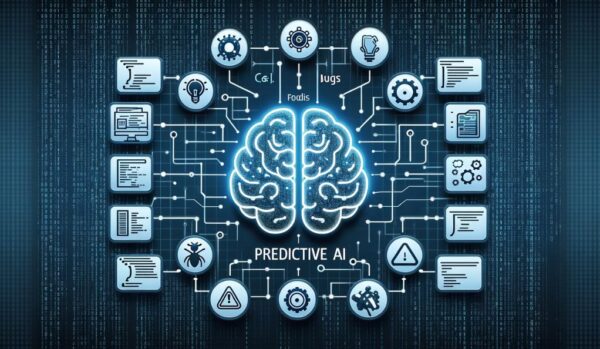Python has solidified its position as one of the most versatile and widely-used programming languages in the modern development landscape. Its readability and simplicity have made it a favorite for beginners and experts alike, paving the way for innovations across fields like data science, web development, and artificial intelligence (AI). The convergence of Python and […]
AI-Powered Performance Testing: Ensuring Scalability and Efficiency
In today’s rapidly evolving digital landscape, the performance of software applications can make or break a business. Whether it’s an e-commerce platform handling thousands of concurrent users during a holiday sale or a banking application processing millions of transactions daily, the need for reliable and scalable performance testing has never been more critical. This is […]
Enhancing Code Quality with AI-Powered Static Analysis
The confluence of Artificial Intelligence (AI) with static code analysis heralds a new chapter in software development, characterized by enhanced precision and efficiency. AI’s integration into static code analysis tools has the transformative potential to revolutionize how developers approach code quality and security. This synergy enables the detection of subtle, complex issues that traditional methods […]
Using AI to Detect Anti-Patterns in Code
In the intricate ballet of software development, anti-patterns represent the missteps — the common yet ineffective solutions to recurring design and programming problems. Unlike patterns, which are best practices that developers follow to create maintainable, scalable, and efficient software, anti-patterns are pitfalls that may seem to provide a quick fix but ultimately lead to additional […]
Enhancing UI Testing with AI: Beyond Traditional Automation
The advent of Artificial Intelligence (AI) in user interface (UI) testing marks a significant milestone in the evolution of software quality assurance. Traditional test automation has served as a cornerstone in this domain, providing a foundation for repetitive and systematic checks that ensure software behaves as expected. However, as applications grow in complexity and user […]
AI in Automated Testing: The Future of Quality Assurance for Digital Platforms
In the fast-paced world of digital innovation, the role of Quality Assurance (QA) is pivotal in delivering flawless applications and websites to end-users. Traditional QA methodologies, while thorough, often struggle to keep up with the rapid development cycles demanded by modern software markets. This is where Artificial Intelligence (AI) steps in, heralding a new era […]
Predictive QA: Using AI to Forecast and Fix Bugs Before They Occur
Quality Assurance (QA) has long been an indispensable part of software development. Traditionally, QA teams have focused on identifying and rectifying bugs and defects after they’ve emerged in the software development life cycle. This reactive approach has served the industry well, but it has its limitations. Enter Predictive QA, a paradigm shift in quality assurance […]
Revolutionizing Quality Assurance: AI in Voice and Speech Recognition Testing
In the digital age, the way we interact with our devices is undergoing a profound transformation. Voice and speech recognition technology, once a figment of science fiction, has now become an integral part of our daily lives. From smartphones that respond to our commands to smart homes that understand our preferences, the applications of this […]
AI in Automated Testing: A New Era for Quality Assurance
In the epoch of the Fourth Industrial Revolution, artificial intelligence (AI) has emerged as a cornerstone technology, pivotal not only in driving innovation but also in safeguarding the vast expanse of Internet-connected systems. Its integration into cybersecurity heralds a transformative era where protection against cyber threats is not just reactive, but also proactive and predictive. […]
Revolutionizing Mobile App Development with AI Coding
The technological landscape is continuously evolving, and at the forefront of this evolution is Artificial Intelligence (AI). AI has permeated various sectors, but its integration into mobile app development is particularly revolutionary. This fusion is not just about making apps smarter; it’s about redefining how developers approach the app creation process and how users interact […]










